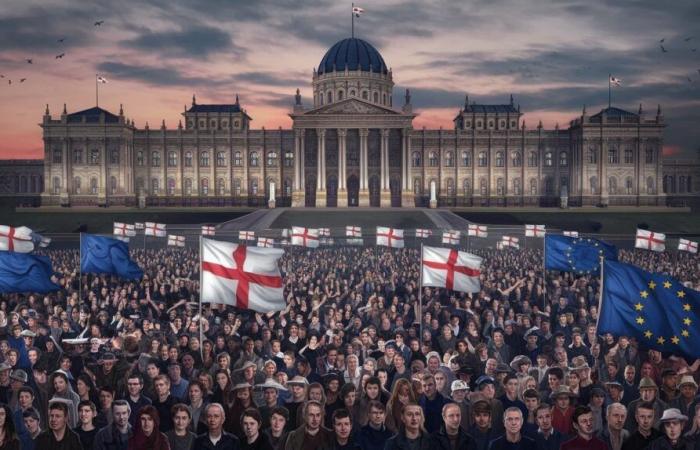In Georgia, tension is at its height on the eve of the inauguration of the new president, accused of being pro-Russian. Thousands of pro-European demonstrators formed a human chain in Tbilisi to protest. The country has been plunged into a major political crisis since the last disputed legislative elections. What future for Georgia, torn between…
On the eve of the presidential inauguration, the streets of Tbilisi, capital of Georgia, are the scene of an unprecedented mobilization. Thousands of pro-European demonstrators formed a huge human chain along the river that runs through the city center, waving Georgian and European Union flags. Their message is clear: no to a president they consider subservient to Moscow, yes to a future resolutely turned towards Europe.
This inauguration, scheduled for tomorrow, crystallizes the tensions that have agitated the country since the legislative elections last October. The ruling party, the Georgian Dream, emerged victorious. But the pro-Western opposition denounces massive fraud and refuses to recognize the results. Since then, demonstrations have continued, despite sometimes brutal repression inspired, according to some observers, by Russian methods.
An ultraconservative and anti-Western president
The new elected president, Mikheïl Kavelachvili, particularly worries pro-Europeans. This politician, little known to the general public, is renowned for his ultraconservative positions and his rhetoric hostile to the West. Many fear that he is just a puppet in the hands of the Georgian Dream and, ultimately, the Kremlin.
Kavelashvili's inauguration will have no meaning. He will never be the legitimate president of Georgia, just as the Georgian Dream is not a legitimate government.
Natia, 27, political science graduate and protester
Putin, the man in the shadows
For many, this political crisis is secretly controlled by Vladimir Putin. The master of the Kremlin would take a very dim view of a rapprochement between this former Soviet republic and Western democracies. According to sources close to the matter, Moscow would not have skimped on the means, particularly financial, to torpedo the process.
This strategy seems to be bearing fruit: the Georgian government recently decided to postpone its efforts to join the EU until 2028. A decision which ignited the powder and plunged the country into the current crisis.
An outgoing president out of office
Faced with this drift, outgoing president Salomé Zourabichvili, a former French diplomat, chose her side. In total break with the government, she claims to be the only legitimate representative of power and openly supports pro-European demonstrators. She was even seen in the human chain yesterday in Tbilisi.
But its limited constitutional powers hardly allow it to influence the course of events. A sign of her powerlessness, she announced that she refused to surrender her mandate until new legislative elections were organized.
A Europe in retreat
For its part, the European Union seems paralyzed in the face of this new challenge at its doors. Apart from a few agreed declarations calling for calm and dialogue, the Europeans stand out above all for their discretion. Some fear that an overly frontal posture will be counterproductive and will reinforce the government's narrative of Western interference.
Europe must emerge from its wait-and-see attitude and provide clear support to the Georgian democratic forces. Georgia has chosen Europe, it is time for Europe to also choose Georgia.
Teimouraz Tsiklauri, 23, international relations student
This major political crisis seems set to last. Beyond tomorrow's inauguration, the pro-European demonstrations show no sign of slowing down. Their leaders promise to continue the movement until their demands are met, first and foremost the cancellation of the last legislative elections and the organization of a new election.
In this standoff, it is the geopolitical future of Georgia that is at stake. Will this small Caucasian country, stuck between Russia and Turkey, manage to escape Moscow's orbit to join the European family? Or will it, like other former Soviet republics before it, end up falling into line and submitting to the good will of the Kremlin? The coming weeks will undoubtedly provide the beginnings of an answer to this crucial question, the implications of which extend well beyond Georgian borders.






